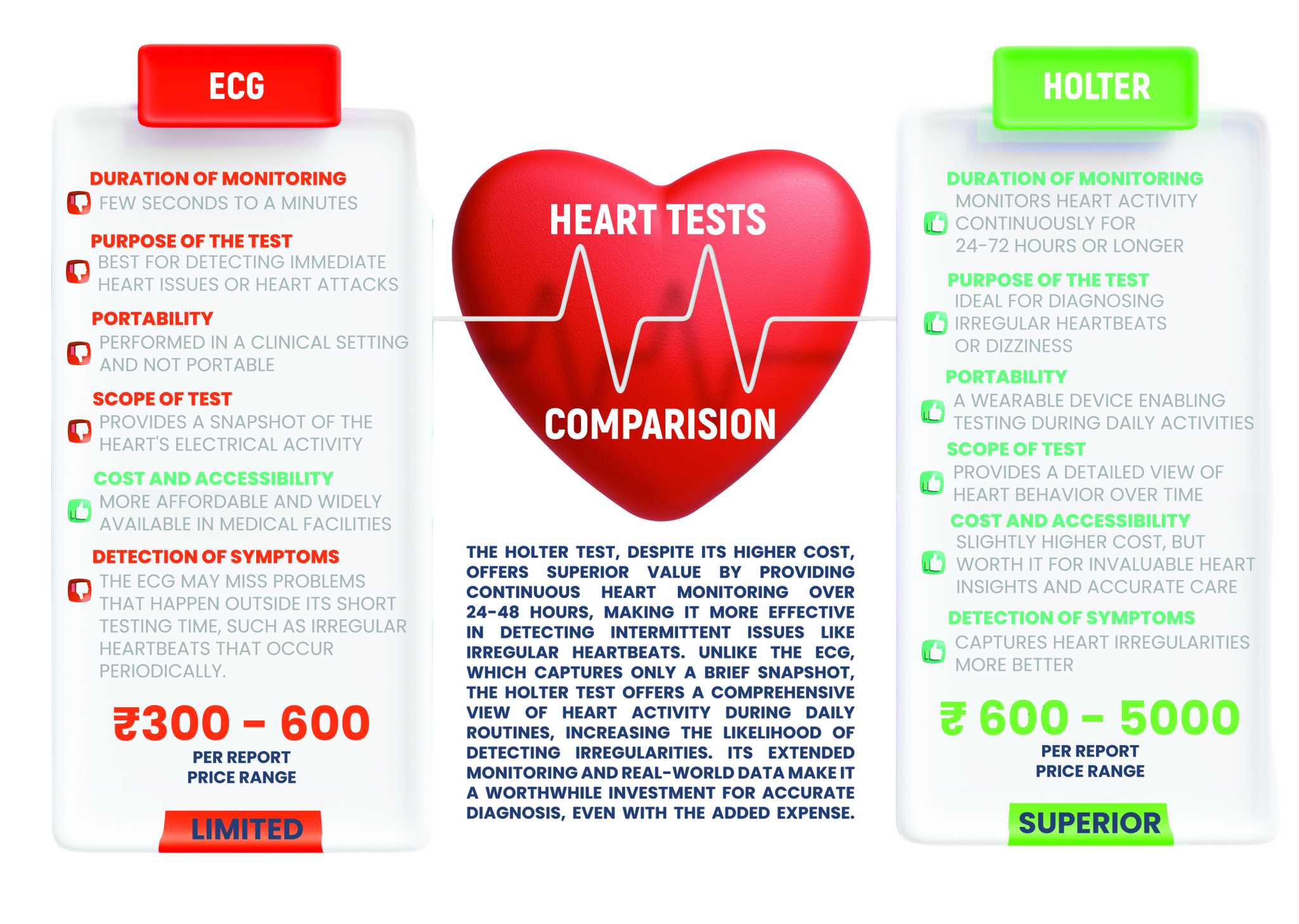
A Holter monitor is a battery-powered device that records your heart’s activity for 24-48 hours or more. It is the size of a small camera and is worn on a strap around the shoulder, neck or waist. It has wires with small discs (electrodes) that stick to your skin to record your heart’s rhythm.
Regular electrocardiograms (EKGs) only show your heart’s activity at one moment. However, abnormal heart rhythms and symptoms may come and go. Your health care professional might want to see how your heart beats over time while you do normal activities. You may need to wear a Holter monitor if you have fast, slow or irregular heartbeats called arrhythmias.
Wearing the monitor can help your health care professional:
- See if your medications are working
- Find out why you feel dizzy, faint or like your heart is racing or skipping a beat
- Check if your heart is getting enough oxygen
Wearing a Holter monitor is safe and doesn’t hurt.
The electrodes may cause mild skin irritation because they are attached with tape or adhesives. Tell the technician if you are allergic to tapes or adhesives.
A technician will put the monitor on you and show you how to record your symptoms while wearing it.
- The technician attaches the electrodes to your chest. If you have a hairy chest, they might have to shave some hair to help the electrodes stick firmly.
- Once the electrodes are on, the technician helps you put on the monitor. They will explain how to take care of it.
- You carry the monitor in a pocket or pouch, slung across your shoulders and neck like a purse or camera, or attach it to your waist.
- You can do your usual activities while you’re wearing the monitor except:
- Don’t bathe, shower or swim. The monitor can’t get wet.
- Don’t have X-rays.
- Stay away from high-voltage areas, metal detectors or large magnets.
- The technician will show you how to keep a diary of your activities and symptoms. If you feel symptoms such as chest pain, shortness of breath, uneven heartbeats or dizziness, write in your diary the time and what you were doing. Your diary will be compared to the changes in your EKG recorded by the monitor.
You may be a candidate for a Holter monitor test if you have:
- Chest pain not reproduced with exercise testing.
- Symptoms that may be heart-related, such as fatigue, shortness of breath, dizziness, or fainting.
- An irregular heartbeat or palpitations.
- Cardiomyopathy.
- Had a heart attack.
- Have an implanted pacemaker.
- Have had treatment for arrhythmia.
A Holter monitor does not directly detect anxiety, but it may measure an abnormal heart rhythm that occurs during an anxiety or panic attack.
A Holter monitor can detect inadequate blood supply, which can indicate a blockage. It may be prescribed for you if you have had a recent heart attack. The goal is to check for new blockages.
The Holter monitor is an easy way to check your heart’s function. The risk of complications is very low.
You may have some difficulty keeping the electrodes stuck to your skin and removing them may be uncomfortable. If the electrodes are on for a long time, some itchiness or blistering may occur.
amet, consectetur adipisicing elit, sed do eiusmod tempor incididunt ut labore et dolore magna aliqua. Ut enim ad minim veniam, quis nostrud exercitation ullamco laboris nisi ut aliquip ex ea commodo consequat.
You can receive delivery of the Holter monitor in Delhi, and other top cities in India. Rent or purchase Holter monitor online from Antmedical.in Medical Equipment, and it will be delivered to your doorstep. Call Now :- +91 9319444599

